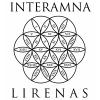Classics Beyond Borders
A collaborative project with the Department of Classics and Philosophy at the University of Ghana to explore notions of political community in Plato and beyond and to foster teaching and research links with universities in Africa. READ MORE.
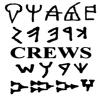 The Contexts of and Relations between Early Writing Systems (CREWS)
The Contexts of and Relations between Early Writing Systems (CREWS)
Taking an innovative and interdisciplinary approach to the history of writing, this project is developing new methodologies for studying writing systems and their social context. The project researchers will be working on specific case studies relating to inscriptions of the ancient Aegean, Eastern Mediterranean and Levant (c.2000-600 BC). By looking at the ways in which writing systems were developed and used, we can study not only the systems themselves and the languages written in them, but also the cultural settings in which they were adapted and maintained. READ MORE
West Area of Samos Archaeological Project (WASAP)
The West Area of Samos Archaeological Project (WASAP) is a five-year research programme (2021–2025) undertaken by the British School at Athens, University of Cambridge and University of Vienna. It aims to explore through intensive pedestrian survey and extensive drone survey the little-known west part of the island of Samos, located in the central part of the East Aegean.
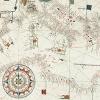 The Impact of the Ancient City
The Impact of the Ancient City
This project re-examines the impact of the ancient, Greco-Roman city on subsequent urban history across Europe and the Islamic world, investigating both the urban fabric and urban ideals. Bringing together researchers trained in historical, archaeological and literary analysis, the project spans the entire Mediterranean region from antiquity to the present day. The research team will investigate case histories in the western and eastern Mediterranean, and pose a new set of questions about how urban forms responded to changing social needs, stressing the diversity of impacts over time and place, in the Islamic as well as the European spheres. READ MORE
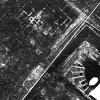 Beneath the surface of Roman Republican cities
Beneath the surface of Roman Republican cities
The middle Roman Republic (4th-3rd c. BC) was the formative period in the development of Roman urbanism. Since Roman cities became central to the character of Rome's imperial system, understanding the earliest development of towns in Italy at this period is central to any comprehension of Roman imperialism itself. This innovative AHRC-funded project is deploying Ground-Penetrating Radar survey alongside the study of ceramic assemblages across the full extent of two cities founded in this period (Interamna Lirenas and Falerii Novi) to characterise their early development. READ MORE
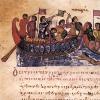 Greek Epic of the Roman Empire: A Cultural History
Greek Epic of the Roman Empire: A Cultural History
This project is providing the first systematic analysis, in cultural terms, of the large and challenging corpus of Greek epic poetry composed across the Roman Empire, from the first to the sixth century AD. Epic was, for Greeks throughout antiquity, the most prestigious literary form, the apex of the hierarchy of genres. Through it they articulated their conceptions of war, empire, mortality, religion, gender, the natural order, psychology and cultural identity; and continued to do so across the changing political and religious landscape of Rome’s Empire. READ MORE
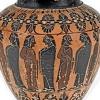 Greek in Italy
Greek in Italy
This project aims to understand the nature and long-term effects of language contact between the Greek brought to the Italian peninsula by diverse sailors, traders and colonists over the first millennium BC and the other languages of Ancient Italy. It will investigate the spread of the Greek alphabet among non-Greek speaking communities, and examine the Greek dialects of Southern Italy; promoting dialogue between linguists and other scholars working on Greek colonization in Italy, and exploring the relation of linguistic interactions to wider social and political factors. READ MORE
Interamna Lirenas Project
Since 2010 the Roman town of Interamna Lirenas and its hinterland (Central Italy) have been the object of an integrated fieldwork project involving geophysical prospection, field survey and excavation. This research programme is especially interested in the long-term relationship between town and countryside as reflecting the broader transformations taking place in Roman Italy between Republic and Empire. READ MORE
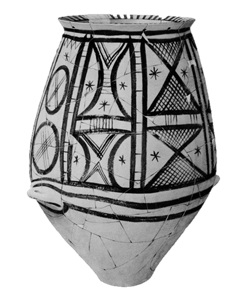
Lerna
The primary goal of this project is to fill the crucial gap in the publication record of this key site, and contribute more widely to our knowledge of this period in Greek prehistory. READ MORE
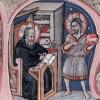 The Cambridge Greek Lexicon Project
The Cambridge Greek Lexicon Project
The Cambridge Greek Lexicon Project will make available, both in print and online, an entirely new Greek-English lexicon, aimed at everyone who wants to read, learn or teach Greek, based on a re-reading of the ancient sources, organised on modern semantic principles, and deploying innovative digital techniques. READ MORE
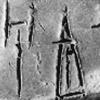 The Mycenaean Epigraphy Group
The Mycenaean Epigraphy Group
This group is dedicated to the study of Linear B, a script used in Bronze Age Crete and Greece (c.1400-1200 B.C.E.) to write an early form of Greek, known as ‘Mycenaean’. It also encompasses the study of other related scripts from Crete (Linear A and Cretan Hieroglyphic) and Cyprus (Cypro-Minoan and the Cypriot Syllabary), as well as of the societies that created and used these scripts. READ MORE
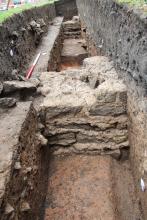 Aldborough Roman Town Project
Aldborough Roman Town Project
The Aldborough Roman Town Project began in 2009. It is designed to carry out archaeological research at Isurium Brigantum, now the village of Aldborough in North Yorkshire. The aim is to better understanding the town’s origins, development, and its role in the social, political and economic context of Roman Britain. Research has involved large-scale geophysical survey, excavation, and the synthesis of previous work. READ MORE.

